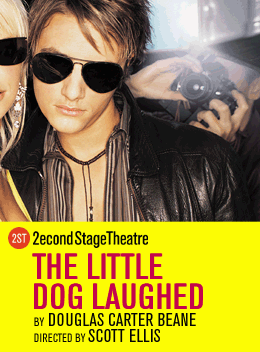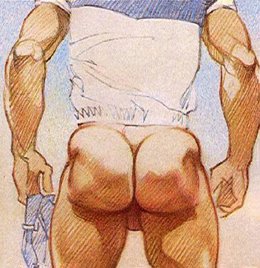"Brokeback" rides into US popular culture
LOS ANGELES (Reuters) - It began as a simple love story between two gay cowboys that movie critics wondered whether America would embrace.
But in three short months, "Brokeback Mountain" is not only an Oscar front-runner but has found its way into U.S. popular culture, inspiring parodies, jokes and cartoons across the spectrum from politics to pop music.
Seen the "Kickback Mountain" poster parody reflecting the corruption scandal sweeping the U.S. Congress? Laughed at TV comedian David Letterman's "Top 10 Signs You're a Gay Cowboy" (10."Your saddle is Versace")? Heard Willie Nelson's new recording "Cowboys are Frequently, Secretly Fond of Each Other?"
Actually seen the movie? Probably not.
"I wish I knew how to quit you" might have become the coolest phrase to throw around during a lovers' tiff but with a mere $72 million U.S. box-office, "Brokeback" is hardly a blockbuster.
"Many, many more people have told a 'Brokeback Mountain' joke than have seen the movie. It's one of those things that has really transcended itself and gotten way more attention than its box office indicates," said culture expert Robert Thompson, director of the Center for the Study of Popular Television.
As an astonished Jake Gyllenhaal said this week after winning a British Film Academy award for best supporting actor, "Who would have thought this would happen?"
In 2004, voters in 11 U.S. states backed amendments to define marriage as a union between a man and a woman, making movie industry watchers nervous about "Brokeback's" reception outside the liberal East and West coasts.
COMEDIANS CAN'T RESIST
Those outside the gay community have responded to the movie's universal love theme. But its niche in popular culture owes much to the fact that the story turns the 195Os and 60s Western -- a showcase for the manly American cowboy -- on its head.
"The idea of taking this very modern 21st century story of tender love between two cowboys and putting it into the time period of an old Western opens up the floodgates for telling jokes," said Thompson. "Comedians can't resist because we all know what a cowboy movie is and this challenges it."
Two of the shirts worn by the men in the movie sold for $100,000 on the Internet this week.
The gay activist buyer called them "the ruby slippers of our time," a reference to the most famous item worn by Judy Garland in "The Wizard of Oz."
TV's ratings hit "American Idol" got in on the act with its own "Brokenote Mountain" spoof last week.
The New Yorker magazine, whose cartoonists have had a field day with the movie's theme of forbidden love in the wilds of Wyoming, gave readers "Watch Your Back Mountain" this week. The two protagonists were accident-prone hunter and Vice President Dick Cheney and President George W. Bush.
"That poster is a template to project so many different pairings with so many different meanings. It is an image that captures the imagination but begs to be remade," said Marty Kaplan, director of the Norman Lear Center, which examines the impact of entertainment on society.
Spread quickly by the Internet and by bloggers, much of the fun at "Brokeback's" expense has been affectionate and, as such, mostly welcomed by the gay community.
Paul Levinson, professor of communication and media studies at Fordham University, said there was already a growing interest in gay relationships in mainstream heterosexual culture.
"'Brokeback' came along at the right time. It was a popular culture success waiting to happen," he said.
But in three short months, "Brokeback Mountain" is not only an Oscar front-runner but has found its way into U.S. popular culture, inspiring parodies, jokes and cartoons across the spectrum from politics to pop music.
Seen the "Kickback Mountain" poster parody reflecting the corruption scandal sweeping the U.S. Congress? Laughed at TV comedian David Letterman's "Top 10 Signs You're a Gay Cowboy" (10."Your saddle is Versace")? Heard Willie Nelson's new recording "Cowboys are Frequently, Secretly Fond of Each Other?"
Actually seen the movie? Probably not.
"I wish I knew how to quit you" might have become the coolest phrase to throw around during a lovers' tiff but with a mere $72 million U.S. box-office, "Brokeback" is hardly a blockbuster.
"Many, many more people have told a 'Brokeback Mountain' joke than have seen the movie. It's one of those things that has really transcended itself and gotten way more attention than its box office indicates," said culture expert Robert Thompson, director of the Center for the Study of Popular Television.
As an astonished Jake Gyllenhaal said this week after winning a British Film Academy award for best supporting actor, "Who would have thought this would happen?"
In 2004, voters in 11 U.S. states backed amendments to define marriage as a union between a man and a woman, making movie industry watchers nervous about "Brokeback's" reception outside the liberal East and West coasts.
COMEDIANS CAN'T RESIST
Those outside the gay community have responded to the movie's universal love theme. But its niche in popular culture owes much to the fact that the story turns the 195Os and 60s Western -- a showcase for the manly American cowboy -- on its head.
"The idea of taking this very modern 21st century story of tender love between two cowboys and putting it into the time period of an old Western opens up the floodgates for telling jokes," said Thompson. "Comedians can't resist because we all know what a cowboy movie is and this challenges it."
Two of the shirts worn by the men in the movie sold for $100,000 on the Internet this week.
The gay activist buyer called them "the ruby slippers of our time," a reference to the most famous item worn by Judy Garland in "The Wizard of Oz."
TV's ratings hit "American Idol" got in on the act with its own "Brokenote Mountain" spoof last week.
The New Yorker magazine, whose cartoonists have had a field day with the movie's theme of forbidden love in the wilds of Wyoming, gave readers "Watch Your Back Mountain" this week. The two protagonists were accident-prone hunter and Vice President Dick Cheney and President George W. Bush.
"That poster is a template to project so many different pairings with so many different meanings. It is an image that captures the imagination but begs to be remade," said Marty Kaplan, director of the Norman Lear Center, which examines the impact of entertainment on society.
Spread quickly by the Internet and by bloggers, much of the fun at "Brokeback's" expense has been affectionate and, as such, mostly welcomed by the gay community.
Paul Levinson, professor of communication and media studies at Fordham University, said there was already a growing interest in gay relationships in mainstream heterosexual culture.
"'Brokeback' came along at the right time. It was a popular culture success waiting to happen," he said.










0 Comments:
Post a Comment
<< Home